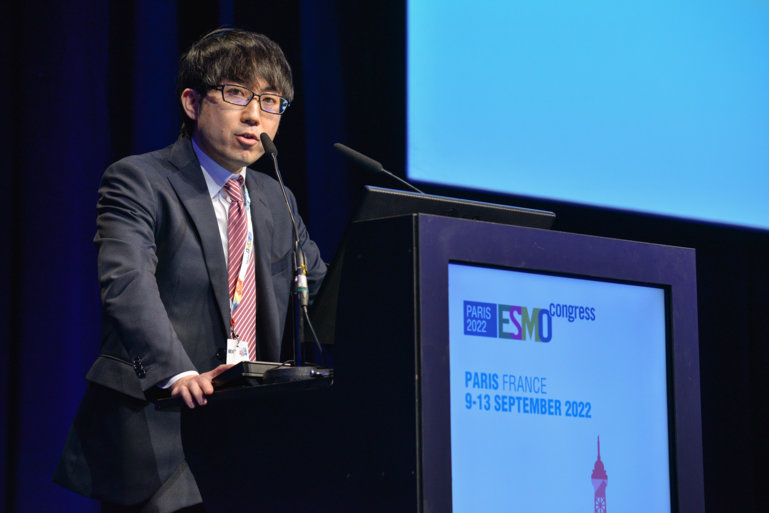ESMO Congress 2022

Intensive follow-up and ctDNA screening may improve detection of early recurrence in CRC patients
Patients with resected stage II–III CRC may benefit from earlier detection of recurrence, enabling more to receive surgery with curative intent, but further work is needed to determine the most reliable and cost-effective methods of follow-up

New data show promise of targeted treatment combinations in advanced KRAS G12C-mutated colorectal cancer
Although further evidence is needed, targeting mutant KRAS with novel agents and combinations may offer new options for patients with advanced colorectal cancer

New therapies, new toxicities
Side-effects may occur at unpredictable timepoints during a patient’s treatment journey and even after treatment cessation

Current status and future needs with immunotherapy in triple-negative breast cancer
Recent evidence shows the potential of immunotherapy to change the treatment landscape of triple-negative breast cancer (TNBC), where historically, chemotherapy has been the only systemic option. But, how do we choose what therapy to give which patients?

Adjuvant immunotherapy does not improve disease-free survival in renal cell carcinoma
IMmotion010, CheckMate 914 and PROSPER miss their primary endpoints: back to square one for adjuvant immunotherapy?

Neoadjuvant or adjuvant immunotherapy – which is the best approach?
The role of neoadjuvant versus adjuvant immunotherapy is no simple comparison but instead involves a complex interplay of factors, based on tumour immune responsiveness, immunotherapy type, combination partners and trial design

Neoadjuvant immunotherapy in dMMR colon cancer - a paradigm shift?
Although not immediately practice-changing, impressive results from the NICHE-2 trial may open a way to a ‘watch and wait’ approach for some patients

Liquid biopsy moving to early cancer detection: is it still early times?
Despite the promises shown by some innovative technologies in the studies presented, they will not replace existing diagnostic modalities soon

A transcriptomic signature can identify gemcitabine-sensitive patients with pancreatic cancer
Disease-free and overall survival in the PRODIGE-24/CCTG PA6 study were significantly higher in GemPred-positive versus GemPred-negative patients who received adjuvant gemcitabine

Data from two prospective, randomised phase III trials give new insights into the treatment of pancreatic cancer
Survival benefit from the combination of gemcitabine with paclitaxel and the role of patients’ stratification for FOLFORINOX are investigated in metastatic and locally advanced settings


